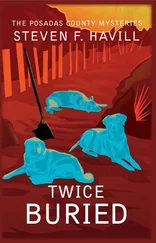Leighton Gage - Buried Strangers
Здесь есть возможность читать онлайн «Leighton Gage - Buried Strangers» весь текст электронной книги совершенно бесплатно (целиком полную версию без сокращений). В некоторых случаях можно слушать аудио, скачать через торрент в формате fb2 и присутствует краткое содержание. Жанр: Полицейский детектив, на английском языке. Описание произведения, (предисловие) а так же отзывы посетителей доступны на портале библиотеки ЛибКат.
- Название:Buried Strangers
- Автор:
- Жанр:
- Год:неизвестен
- ISBN:нет данных
- Рейтинг книги:4 / 5. Голосов: 1
-
Избранное:Добавить в избранное
- Отзывы:
-
Ваша оценка:
- 80
- 1
- 2
- 3
- 4
- 5
Buried Strangers: краткое содержание, описание и аннотация
Предлагаем к чтению аннотацию, описание, краткое содержание или предисловие (зависит от того, что написал сам автор книги «Buried Strangers»). Если вы не нашли необходимую информацию о книге — напишите в комментариях, мы постараемся отыскать её.
Buried Strangers — читать онлайн бесплатно полную книгу (весь текст) целиком
Ниже представлен текст книги, разбитый по страницам. Система сохранения места последней прочитанной страницы, позволяет с удобством читать онлайн бесплатно книгу «Buried Strangers», без необходимости каждый раз заново искать на чём Вы остановились. Поставьте закладку, и сможете в любой момент перейти на страницу, на которой закончили чтение.
Интервал:
Закладка:
“The sergeant wrote it all down, and then he typed it and we signed it.”
“I know. I read it.”
Clarice glanced at the clock on the wall. She wasn’t wear-ing a watch. “Both of us have to get to work,” she said.
Tanaka smiled, trying to put her at ease. “I’ll be happy to give you a note for your employer-for both your employers,” he corrected himself, shifting his gaze to her husband.
“A lot of good that’s going to do,” Ernesto Portella said, his tone surly.
He, too, looked like he needed a good meal. He was wear-ing a beat-up blue cap with the logo of the PCB, Brazil’s Communist Party. The hat was cheap and fraying around the brim, obviously a promotional piece from the last election. Dirty blue jeans and a filthy T-shirt completed his ensemble. The little finger on his left hand was missing, probably sev-ered in some kind of work-related accident. An ugly scar ran from the old wound across the back of his hand and halfway up his bare arm.
“They pay us by the hour,” he said. “They don’t give a shit if we show up late or not. We’re the ones who suffer, not those fucking capitalist bloodsuckers.”
Tanaka frowned. Fortunately for Ernesto Portella, mem-bership in the PCB was no longer illegal.
“You want to do the right thing for your friends, don’t you?” Tanaka asked. “The Lisboas are your friends aren’t they?”
Clarice nodded her head in agreement. After a moment her husband did, too.
Tanaka had almost said were your friends.
Ernesto took a cigarette and a pack of matches out of his breast pocket.
“No smoking in here,” Tanaka said.
“Then I’ll go outside.”
He got up.
Tanaka slammed a palm down on his desk.
“No, you won’t,” he said and pointed at the chair. “You’ll sit right there until I tell you you’re free to go.”
Clarice seemed startled. Ernesto wasn’t as easily intimidated.
“You can’t-”
His wife interrupted him. “Ernesto,” she said, “shut up.”
Ernesto resumed his seat, crossed his arms, and stared out the window.
Tanaka took up where he’d left off, this time directing himself exclusively to the woman.
“As I was saying,” he said, “it often helps to go over every-thing again with a different interviewer. Sometimes we pick up small details that didn’t come to light the first time around. And small details can be of great significance. Let’s start again from the beginning. There are four of them, right? The father, Edmundo-”
“Edmar,” she corrected him.
Tanaka glanced at the first page of Lucas’s report. He picked up his pen, crossed out Edmundo, and wrote Edmar before continuing.
“You see? Even policemen make mistakes.”
“Even policemen,” Ernesto echoed, his voice dripping with sarcasm.
Tanaka elected to act as if he hadn’t heard him. “The father, Edmar, the wife, Augusta, and their two daughters, Mari and Julia.”
“Yes. Mari is Mariana. Everyone calls Julia Juju.”
“And Edmar Lisboa is a stonemason, is that right?” He looked up from the report and waited for her to nod. When she did, he said, “This job he was offered, how did it come about?”
“I already told that to Sergeant Lucas.”
Tanaka sighed. He hadn’t overestimated the woman’s intelligence, or rather lack of it.
“Senhora Portella, please. Forget Sergeant Lucas. Make believe you’re telling me the story for the first time.”
“Oh, yes. I see. Well, Edmar was building a wall. A man came up, watched him work and then he said he was looking for a stonemason to work on a fazenda. He was offering good money. He was even offering a house. Edmar liked the coun-try. He was raised in the country. He only came here because he couldn’t get work back home in Pernambuco. You know how it is up there.”
Pernambuco was a state far to the northeast, tucked in between Bahia and Ceara. Tanaka did, indeed, know how it was up there. Everybody did. No industry, great poverty, some cities with twice as many women as men because of mass migration southward to where the jobs were.
And that’s why my town is filling up with a bunch of fucking Nordestinos like you and your friends, Tanaka thought. But he didn’t say it. Instead, he said, “So he took the job? Just like that? ” Tanaka snapped his fingers.
She gave a little jump.
Not only stupid. Nervous, too.
She shook her head.
“No,” she said, “Edmar isn’t like that. He said he’d have to talk to Augusta.”
“He’s a pussy,” Ernesto said. “Guy has no balls at all. She pushes him around.”
“Shut up, Ernesto,” she said.
The way she said it reminded Tanaka of his wife, Marcela.
Ernesto went back to looking out of the window.
“So then what?” Tanaka asked, identifying just the least little bit with her husband.
“The man came to talk to her.”
“To your friend, Augusta?”
Clarice nodded.
“He showed her pictures in a book.”
“What kind of pictures?”
“Of the fazenda.”
“And she bought the idea?”
“She what?”
“She agreed to go?”
Clarice nodded her head. “She quit her job,” she said, “and Edmar quit his, and the man came to take them away. That was a week after his first visit. The street was too nar-row to bring the truck up to the house. We had to carry everything down to the corner. Once the truck was loaded, the family went in a van.”
“So there was a truck and a van?”
“That’s right.”
Tanaka made a note. “And that was the last time you saw them?”
“Last time,” she said.
“You mentioned a letter.” Tanaka put a forefinger on Sergeant Lucas’s report. “Where is it?”
“Here.” Clarice opened her purse, took out an envelope, and handed it to him. It was still sealed and quite thick. He bent it back and forth between his fingers.
“What’s in it?”
“Augusta worked for Dona Inez Menezes,” Clarice said. “Dona Inez owed Augusta some money. Augusta asked me to send it to her. I bought a postal money order and wrapped some paper around it so it wouldn’t attract attention.”
Tanaka scrutinized the front of the envelope. There was a stamp in red ink: RETURN TO SENDER.
“How did you get it?” he asked.
“Get what, Senhor ?”
This is like pulling teeth, Tanaka thought.
“This address,” he said.
He showed her the front of the envelope.
“Oh. That. The man wrote it for me.”
“What man?”
“The same man who got Edmar the job.”
“And the same man who took the family away?”
“Yes. He drove the van. He brought another man with him to drive the truck.”
“Can you remember his name?”
She closed her eyes and pursed her lips. Tanaka waited, tapping his fingers on the desk. “Roberto. . Something,” she said at last. “He’s a carioca. ”
It didn’t surprise Tanaka that she could identify the man as a carioca, a native of Rio de Janeiro. He wouldn’t have had to tell her where he was from. She would have heard it, heard all those sibilant s’s that littered the speech of everyone who came from there. As to the name, Roberto, it wasn’t going to help. There were only a few names more common.
“You’d recognize him? If you saw him again, I mean?”
Clarice nodded.
“Me, too,” Ernesto said. “I helped load all of their stuff onto the truck, and some of it was heavy. The lazy bastard just stood there, giving orders. He didn’t lift a finger. Typical fucking carioca.”
Cariocas, most of Brazil agreed, were indolent. This time, Clarice didn’t tell her husband to shut up. Apparently, she agreed with his evaluation.
Читать дальшеИнтервал:
Закладка:
Похожие книги на «Buried Strangers»
Представляем Вашему вниманию похожие книги на «Buried Strangers» списком для выбора. Мы отобрали схожую по названию и смыслу литературу в надежде предоставить читателям больше вариантов отыскать новые, интересные, ещё непрочитанные произведения.
Обсуждение, отзывы о книге «Buried Strangers» и просто собственные мнения читателей. Оставьте ваши комментарии, напишите, что Вы думаете о произведении, его смысле или главных героях. Укажите что конкретно понравилось, а что нет, и почему Вы так считаете.












